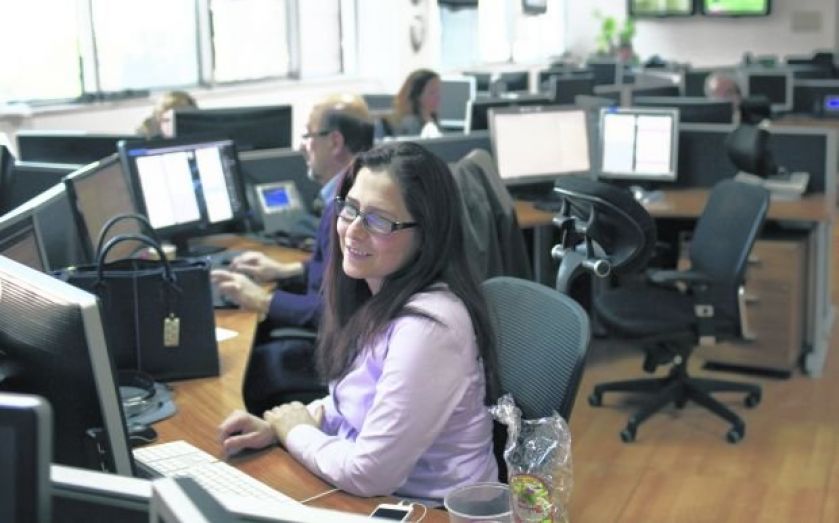Aches and pains? Why your desk may be to blame

If you are on your way into the office for another day at your desk, spare a thought for your bones, muscles and joints. Our bodies are designed to move, so lengthy periods spent sitting at your desk can lead to problems above and beyond the odd ache.
We asked Dr Pippa Bennett, the lead musculoskeletal physician at the Bupa Centre on Basinghall Street in the City, to share her top tips on keeping your bones, joints and muscles healthy at work.
MAINTAIN A GOOD POSTURE
Sitting in the same position for a long time at work can leave you feeling tense and achy, particularly if you work at a computer, when tension across your back, neck, shoulders and arms is common. Try to maintain a good posture throughout the day, taking extra care at the end of the day when you are more fatigued. Things that can help with posture include having a chair with a supportive back at the right height so you feet are flat on the floor, a desk at the right height so your arms rest on the table, your keyboard and mouse set in a comfortable position with your hands and wrists in a neutral non-stretched position, and your screen at eye level with the appropriate light setting.
CHANGE YOUR WORKING HABITS
Common problems with prolonged periods sitting in the wrong posture are back and neck pain, and repetitive strain injury in the wrists and hands. To help alleviate these, consider asking your boss for a standing desk, or try having some meetings over a walk, rather than around a table.
KEEP HYDRATED
When we become dehydrated we are prone to headaches and fatigue. In addition, our neuromuscular pathways are not as active, making us prone to injury; keep a bottle of water at your desk and sip throughout the day.
STRETCH
Consider regular stretching, yoga or pilates which can help reduce stiffness in your joints, muscles and tendons and help your core strength. This in turn helps you maintain a good posture. If you can’t get away from your desk, try to do some simple core exercises in your chair. A good one is sitting up and twisting your upper body around to the left for three seconds and then round to right for three seconds repeat this three times. This will rotate your thoracic spine, an area that gets especially stiff.
BREAK UP YOUR DAY
Break up long spells at your desk by taking a short break every hour, and use these to get moving. Try to get out of the office and take a walk, which will help to get those stiff joints moving again, as well as helping you to top up your vitamin D levels. Remember, movement is medicine so if you do feel achy then getting out and moving can be the best remedy. Should you develop persistent pain seek the advice of a physiotherapist, osteopath or musculoskeletal physician.
The Bupa Centre on Basinghall Street in the city of London provides a range of services including muscle, bone and joint treatments, cardiology and dermatology services, diagnostic tests, GP appointments and cosmetic procedures. It is available to everyone, including those without health insurance, offering appointments outside office hours to make things as convenient as possible. For more information visit www.bupa.co.uk/basinghall or call 020 7200 2700.